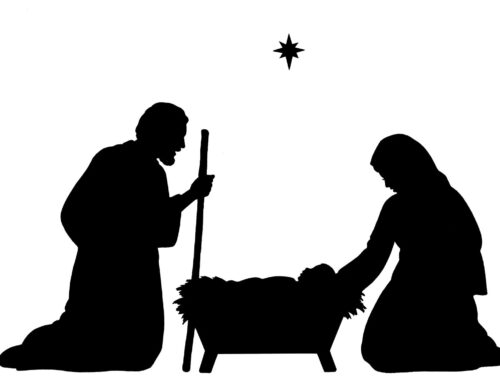Be Gentle
— Allan Pole
 Be gentle. I have said this often to young children when touching newborn babies or animals. It seems that we never outgrow the need for this occasional reminder. Paul the Apostle provides such a reminder.
Be gentle. I have said this often to young children when touching newborn babies or animals. It seems that we never outgrow the need for this occasional reminder. Paul the Apostle provides such a reminder.
“Be completely humble and gentle; be patient, bearing with one another in love.” —Ephesians 4:2 NIV
A pastor was on his way to visit a woman in the hospital. Riding the elevator, he mulled over how he should approach her. She had made wrong choices, landing in the ICU (intensive care unit). Because of her sinful lifestyle, she now needed medical attention. She had violated the moral laws of God and paid the price. The pastor knew he would be theologically correct by reminding her that she was reaping what she had sown. But was that the best approach? As he got off the elevator he saw a sign that read, HIGH TECH, GENTLE TOUCH. The ICU was filled with complicated, highly technical equipment that could do amazing things to save lives. But the words gentle touch suggested that patients are suffering people in need of being handled with tender loving care. In the Old Testament we see how the Lord took a selfassured world leader and transformed him into a gentle servant. After first convincing Moses that he was unfit for leadership, God then fit him into His plan. The Lord led Moses from the royal court of Pharaoh to the wilderness where he tended sheep. Later, as leader of the people of Israel, he is described in Numbers 12:1-3 this way: “Miriam and Aaron began to talk against Moses because of his Cushite wife, for he had married a Cushite. “Has the LORD spoken only through Moses?” they asked. “Hasn’t he also spoken through us?” And the LORD heard this. Now Moses was a very humble man, more humble than anyone else on the face of the earth.” We see, by Moses’ reaction to Miriam and Aaron as they criticize and question his leadership, that gentleness flows out of humility. This humble, gentle man went on to ask the Lord for mercy (verse 13) when Miriam provoked God’s anger and was smitten with leprosy. “So Moses cried out to the LORD, “O God, please heal her!” A gentleman is someone who can disagree—without being disagreeable. One of the gentlest men in history was John the Baptist. He was such a powerful figure that Josephus, the great Jewish historian, reported that when John’s name was mentioned many years later, people still trembled at the thought of him. Jesus’s eulogy of John tells us that he was greater than any man born of woman. When he saw Christ, rather than giving a speech about his own great accomplishments, he sent his disciples to Jesus telling them, “He must increase but I must decrease.” When asked who he was, he simply said, “I am nobody. I am to be heard, not to be seen. I am just a voice.” We live in a time of recognition—the greatest evangelist, speaker, leader, actor, musician, athlete or any other important figure. We desire dignity and position. We want title and fame. No wonder Christ cannot be seen. Where is our meekness? Where is our gentleness? Gentleness starts with a Biblical self-image—neither thinking more nor less of ourselves than we ought to. Humility is seeing ourselves the way God sees us. Our relationships will flourish when we decide to cultivate humility and gentleness. It’s natural for us to see a strong person as one who not only does what he wills, but also bends others to do his will. The Biblical concept of meekness is quite different. Meekness in the Greek language is used to describe an animal that has been trained by its master. Wild and unruly animals are worthless, but when trained they become meek—teachable and quiet. Meekness is strength under the control of God—and that gentleness is true power. Have you submitted to the Master’s training to become gentle? Are you committed to loving Jesus and loving others in a gentle way?





























































Thanks. This is well thought out and timely for me. May the Lord bless you for sharing as it has blessed me through read and pondering it. Blessings, Doreen